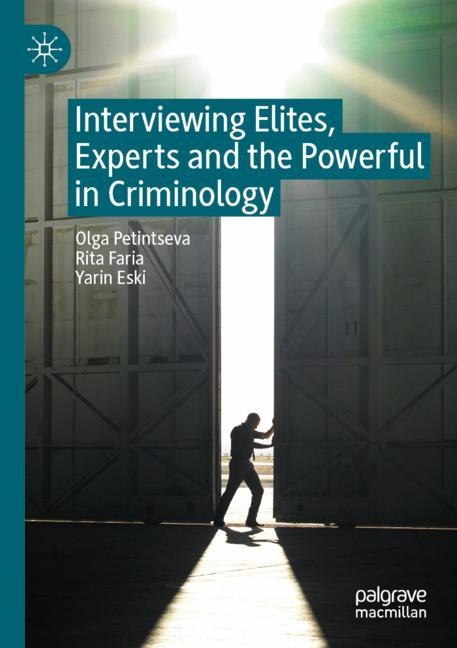
Interviewing Elites, Experts and the Powerful in Criminology
Springer International Publishing (Verlag)
978-3-030-33002-6 (ISBN)
- Lieferbar
- Versandkostenfrei
- Auch auf Rechnung
- Artikel merken
Olga Petintseva is Postdoctoral Research Fellow at the University of Ghent, Belgium. Her expertise is located at the intersection of criminology, migration studies and socio-linguistics.
Julie Tieberghien is Postdoctoral Research Fellow at the University of Ghent, Belgium.
Rita Faria is Assistant Professor at the School of Criminology, University of Porto, Portugal. Rita does research in white-collar crime, research misconduct and the use of qualitative methods in Criminology.
Yarin Eski is Assistant Professor at the Knowledge Hub Security and Social Resilience of the Vrije Universiteit Amsterdam, the Netherlands. He obtained his PhD in 2015 from the University of Glasgow.
Preface4
Chapter 1. Introduction6
Chapter 2. Interviewing 'the powerful' in crime and crime control121.1.Introduction121.2.Conceptual issues: who are the 'powerful', 'elites' and 'experts'?121.3.Particularities of qualitative interviews with the powerful181.4.Why interview the powerful?211.5.Core readings23References24
Chapter 3. Interview models and researcher's self-positioning272.1. Introduction272.2. Informal and ethnographic interviews312.3. Doxastic interviews342.4. Looking glass: Researcher as a peer342.5. Active interviewing392.5.1. Epistemic interviewing402.5.2. 'Light' Socratic dialogues as a variation of epistemic interviewing422.5.3. Interviewer as critic462.6. Core readings47References47
Chapter 4. Their reign, their game? Accessing the powerful523.1. Introduction523.2. Sampling533.3. Gaining access583.4. Maintaining access693.5. Core readings73References74
Chapter 5. Prepare, prepare, prepare774.1. Introduction774.2. Gaining insights in the setting and its ongoing debates784.3. Constructing a topic list804.4. Probing and elicitation854.5. Core readings86References86
Chapter 6. Conducting the interview885.1. Introduction885.2. Gaining trust and building rapport885.3. Dealing with questions and assumptions about your knowledge and views935.4. Ethics during the interview interaction955.5. Language, jargon, body language, attitude985.6. Getting into sensitive topics and past corporate answers1015.7. Physical setting1045.7.1. The interview venue1045.7.2. Interviewing in the online and offline world1085.8. Core readings109References110
Chapter 7. Making sense of the data1136.1. Introduction1136.2. Transcribing and coding1136.3. Researcher as a situated actor1166.4. Assessing data quality1176.5. Ethics in analysis and reporting1266.6. Leaving the field and getting back to participants1296.7. Presenting your findings1316.8. Core readings132References133
| Erscheinungsdatum | 20.11.2020 |
|---|---|
| Zusatzinfo | XIII, 166 p. 2 illus. |
| Verlagsort | Cham |
| Sprache | englisch |
| Maße | 148 x 210 mm |
| Themenwelt | Recht / Steuern ► Strafrecht ► Kriminologie |
| Sozialwissenschaften ► Soziologie ► Empirische Sozialforschung | |
| Schlagworte | interviewing police • interviewing policymakers • interviewing practitioners • Interview Skills • qualitative criminology • researching the elite • Research methods • research methods criminology • research methods social science |
| ISBN-10 | 3-030-33002-8 / 3030330028 |
| ISBN-13 | 978-3-030-33002-6 / 9783030330026 |
| Zustand | Neuware |
| Haben Sie eine Frage zum Produkt? |
aus dem Bereich


